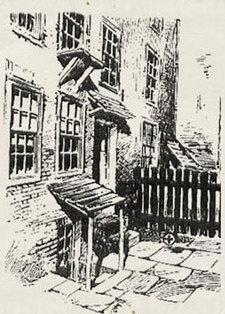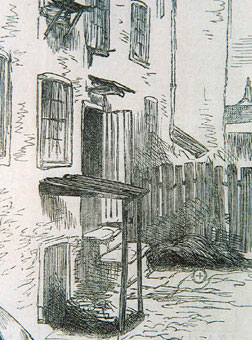Originally posted by JeffHamm
View Post
Hi C.F. Leon,
That's very true, we can never re-evaluate the accuracy of any given transcript of the inquest testimony. All records of what people actually said have been made by writing things down by hand, either longhand (as per the official inquest documents), or possibly by short hand, which many journalists would have been trained in. Of course we can't say for sure if a given journalist used shorthand, we can see how when the papers report the inquest in transcript format (as apposed to presenting summaries) they often record a lot more than what is contained in the official inquest documents (like the questions posed, who posed them, and so forth), providing us with more context. But we also see some variation in specific words, and phrases, between the different transcripts.
That variation in wording tells us, without any doubt, there are errors introduced between the words the people said and the words that are available to us. Those errors could errors of omission (where words that were said are not in the written transcript), errors of addition (words that are in the transcript were not actually said but were added), and errors of transmission (where a word that was written down is not the word that was said because the transcriber misheard the speaker - the word was not correctly "transmitted" to the receiver).
An example of that last type is Barnett's statement of identifying MJK by her eyes and ears. It is oft debated that "ears" is probably a mishearing of "hair". We don't know that was the case, but it is a very valid argument because ears are not something that usually are very identifiable. But maybe there was something unique about her ears that we are simply unaware of, so in the end, we can never know for sure what Barnett said. We are left either having to try and work it out through reasoning, risking the possibility that we get it wrong, or walking away and just concluding the data we have to work with is too incomplete to really do anything with. Those who believe the latter, of course, don't participate here, so I think most of us would generally fall in the first group.
Given we do have multiple versions of transcripts for some of the inquests, we have to resort to comparing the different copies. Similar to the above, we can never really be positive if wording differences reflect an error of omission in once source or an error of addition in the other. One example is the difference in the description of the Goulston Street apron piece being described as one corner being wet versus one corner being wet with blood. Those last two words "with blood", could be missing through an omission, or could be an addition by the newspaper (added to clarify what the reporter believed was intended by the speaker, for example). These concerns apply equally to transcripts in the newspapers and the official hand written documents. Just because a transcript was made by an official of the inquest doesn't make their ability to write down what people said perfect. And just because witnesses had to sign those documents doesn't mean that is exactly what they said. How could they possibly remember their exact utterances and insist on edits? And to do so presumes they even read the transcript prior to signing it - most will just trust the official to have made an acceptable recording, and some may not even have been able to read well enough to even make a cursory scan through.
Add to that the fact that communication involves more than just the specific words, but also includes intonation, body language, and so forth, what we have available to us is a far reduced set of information, making it even harder for us to know exactly what a speaker meant.
Language is incredibly imprecise, but despite that, we can still convey what's in our head to someone else with pretty good efficiency. Sometimes it requires a fair bit of conversation to really hone in on the precise concepts, and so when we try and work out what a speaker intended by a particular utterance we do have to look at more than just that one sentence, and certainly more than just a specific word within that sentence.
I think that's one of the interesting aspects of studying the Whitechapel crimes though, as discussions about the various interpretations and possibilities highlight all of this points. It is why two people can look at the same information and yet reach very different conclusions. The data we have is simply very ambiguous at times, and yet we often treat it as if it is precise and that our interpretation must somehow be the right one (because what we understand those words to mean feels to us to be the only things those words could mean ; and sadly, that's just not true).
- Jeff
You are so right. the problem is that the variations in some of the witness testimony has a major impact on important aspects of each of the murders.
A classic example is the case being discussed where time of death is a major issue.








Comment